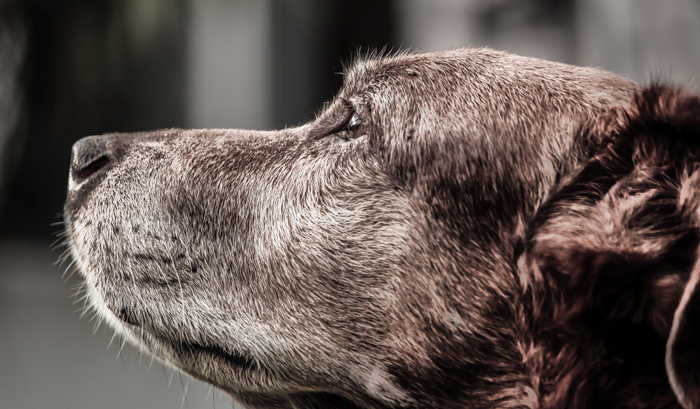5 Reasons to Adopt a Senior Pet
Every year approximately 3.2 million animals are adopted from shelters in the United States. And while everyone loves how cute puppies and kittens can be, adopters sometimes find that they aren’t able to handle the needs of their pet. When this happens, the animal is often returned to the shelter, or worse — put outside on the street to fend for themselves.
Finding the right pet for you or your family comes down to finding the right fit — which may not always be an energetic and untrained puppy or kitten. In fact, there are many older dogs and cats that have already settled into adulthood, gone through training, and just need a home and a human to call their own.
So what are some of the ways adult and senior dogs and cats differ from their younger selves?
Temperament
Puppies and kittens seem to have two modes: asleep or crazy. But older dogs and cats, who’ve had time to mature, are usually more mellow because everything isn’t shiny and new. The biggest changes to an older cat or dog’s personality may occur in the first few weeks after bringing them home for the first time. Even still, they are unlikely to do a complete personality flip from when you first met them.
If the idea of an energetic pet makes you nervous, a calm, older animal can make a great companion for new pet owners and senior citizens.
Training
Many older dogs who end up at shelters have already had some training and may know some basic commands. They will almost certainly be housebroken and may even be crate trained. Even if your new pet is not trained in all the areas you would like, building on existing training fundamentals is a much easier place to start from.
Exercise
Much like humans, as cats and dogs mature their energy levels tend to decrease resulting in a need for fewer long walks and less playtime. However, they should still be taken outside at regular intervals and played with for extra bonding time. Dog parks are also a great way for your dog to expend some of their excess energy while socializing with other dogs.
Cats, on the other hand, are notoriously independent. Given a proper assortment of toys to choose from (or cat furniture and scratching posts) most will exercise themselves. However, playing with your cat can do every bit as much good for your wellbeing as for theirs. Is your cat acting out? Playtime can also help relieve your cat of aggression they may be showing. Just be sure to put the squeaky and jingly toys away before bed or your cat may decide it’s time to play at 3 am.
Veterinary Care
When adopting a pet from a shelter or rescue you’ll receive a breakdown of the animal’s medical history. Adult and senior animals will almost always be spayed or neutered, whereas some puppies and kittens may be too young for the procedure upon adoption. In cases like these, the surgery will need to be scheduled when they are old enough. Vaccination records, current medications, and general health concerns should also be discussed.
Love
A puppy or kitten will love you no matter what because it has also never known (or has no memory of) a life before you. But the best part of adopting an adult or senior dog is that they have every bit as much love to give you and your family as a puppy or kitten would — maybe even more.
By adopting an older dog or cat, this animal will love you unconditionally because it knows what life is like without you, or worse — what life is like without anyone. Dogs and cats that come from the street spend their lives scrounging for food, dodging cars, and staying away from other more aggressive animals or predators. Being in that constant state of fight or flight, they may need a little time to adjust to their new surroundings and understand that they are safe. Once this happens, there is no limit on their love, loyalty, and gratitude.

